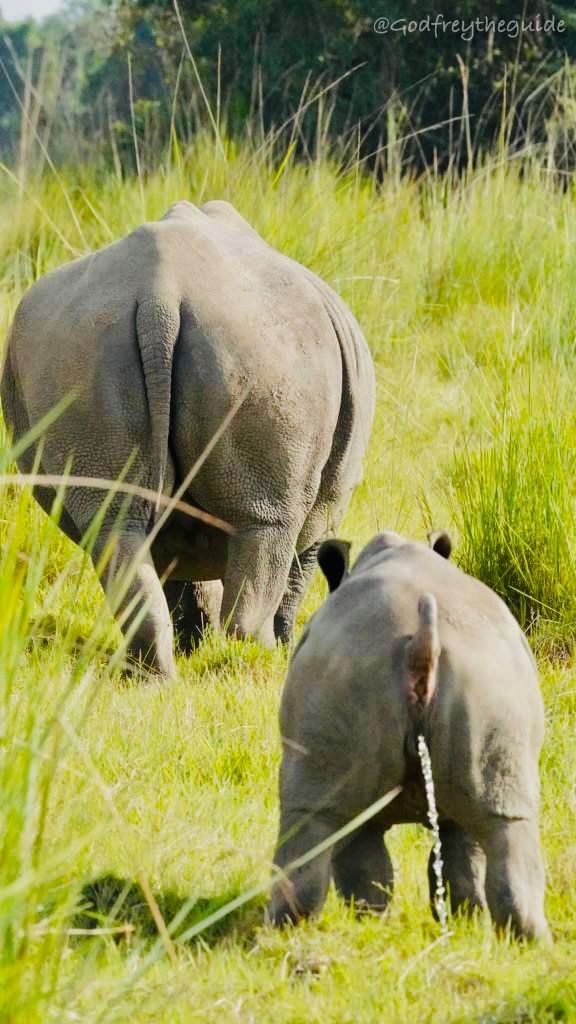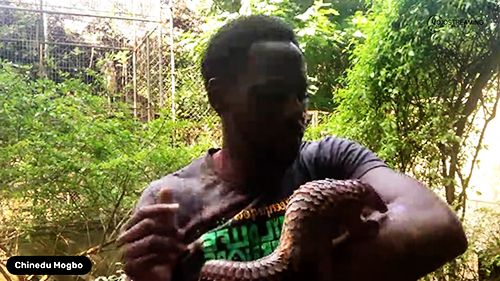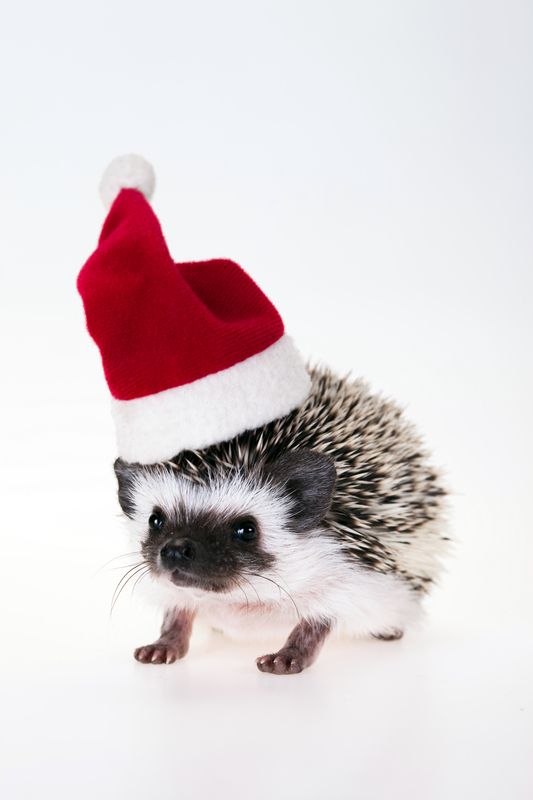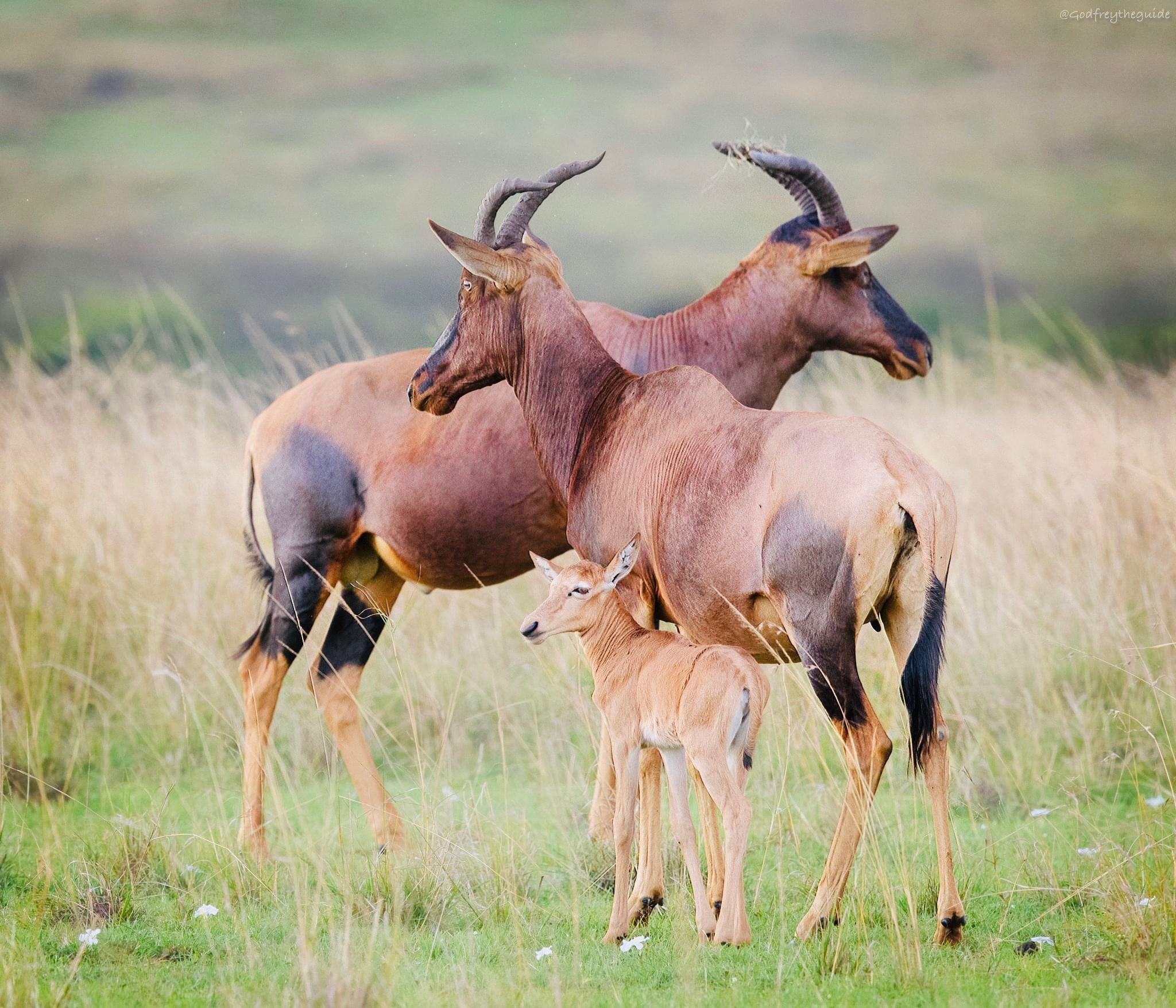TOPS FLIP FLOP
State caves in to game farmers and hunters over key wildlife protection
By Don Pinnock
10 Apr 2023
Vital legislation in South Africa for the protection of wildlife has been stopped in its tracks by a mysterious settlement between game breeders/hunters and the Department of Environment.
BeyondWords
The Department of Environment (DFFE) had gazetted the most progressive wildlife protection legislation ever drafted in South Africa. It seemed like good news for beleaguered wildlife.
But just before it was to become law, game breeder and hunter organisations applied for an urgent interdict to halt it. DFFE responded with a convincingly argued defence of its legislation, clearly indicating its strong opposition to the application, not least on the grounds that it was not urgent.
But at the last minute, in a secret, out-of-court settlement, the Department withdrew the proposed Threatened or Protected Species (TOPS) regulations as well as related Norms and Standards amendments and agreed to pay the applicants’ legal costs.
Its reasoning? “Due to the urgent timeframes of the litigation, the Department required additional time to consider the varied issues raised in the court application” by Wildlife Ranching South Africa (WRSA) and the Professional Hunters Association of South Africa (PHASA). So was it urgent or wasn’t it?
What’s curious is exactly what happened between 24 March, when the Department filed its comprehensive and well argued 91-page affidavit opposing the interdict, and 27 March when it completely backtracked in conceding to retract the regulations without revealing any of its arguments.
Because the TOPS regulations were closely interlinked to four other Government Notices – also due to come into effect on 1 April – DFFE has also withdrawn the revised Norms and Standards for the management of elephants, the hunting of leopards, the amended protection list of 266 wild mammal, fish, birds, invertebrates and plants and new regulations involving the trade in rhino horn.
What were the seemingly convincing arguments made by WRSA/PHASA that made the DFFE back off? What other agreements or aspects to the settlement were reached? And why and on what basis did DFFE agree to pay costs when, in such cases, each party normally pays them? At this stage nobody’s talking and a request to DFFE by Our Burning Planet got no reply.
Consultation timeframes
The TOPS regulations were published on 3 February for public comment before being promulgated, and at that point WRSA and PHASA met with the Department. Were their concerns raised then? What prompted them to take the Department to court?
Explaining the court challenge, the CEO of PHASA, Dries van Coller, said the publication of the TOPS regulations and species list had taken the industry by surprise because the previous very limited public participation process was eight years ago in 2015.
“The Minister’s promulgated version of the regulations differed materially from the previous versions and included numerous provisions which would be detrimental to the ability of game ranchers and professional hunters to conduct sustainable business in the game industry.”
Van Coller had grounds for complaint. Very limited public participation followed the publication of the TOPS regulations. This is in contrast to the exhaustive consultation following the recommendations of the High Level Panel on lions, rhinos, elephants and leopards and also the White Paper on Biodiversity just approved by Cabinet.
It is also surprising that the minister’s legal advisers appear to have failed to take note of the precedent affirmed for the requirements for public participation in two other cases. One was an interim interdict granted to the Humane Society International-Africa which challenged the hunting and export quotas for elephants, rhinos and leopards. The second judgement was obtained by Endangered Wildlife Trust overturning the Department of Agriculture’s inclusion of several species of wild animals under the Animal Improvement Act.
More than time frames
A reading of the TOPS regulations, however, makes it clear why game farmers and hunters hit the panic button. It’s not just about consultation time frames. Following the report of the High Level Panel, DFFE’s Cabinet-approved proposals on animal wellbeing and the White Paper on Biodiversity just published, it’s clear that Creecy is responsive to increasing reports and studies on cruelty on game farms and, particularly, the hunting of lions bred for the bullet.

A lion in a breeding facility. (Photo: Conservation Action Trust)
All this is having a negative effect on South Africa’s image abroad at a time when the country desperately needs to rebuild its tourist industry after the Covid pandemic.
The new TOPS regulations tighten the thumbscrews on sloppy, inappropriate, dangerous and cruel game farming and hunting in an industry that has mostly been at great pains to fly below the radar. They considerably tighten regulation of captive breeding, rehabilitation, temporary holding and commercial exhibition facilities, game farms and animal translocators.
But the regulations go much further, listing 266 species as vulnerable, endangered, or critically endangered with precise listing of restricted or prohibited activities with regard to each. These include all rhino species, elephants, lions, leopards, African wild dogs, cheetahs, hyenas and a range of plains game including southern roan and sable antelope and both species of zebra.
TOPS also tightens regulations around hunting permits and drills down on captive breeding, which must have infuriated breeders and would have been the main points of contention in the court case. A huge bone of contention with facilities involved in so-called canned hunting, where hand-reared lions are released to be shot, would have been regulations prohibiting the hunting of a large predator in an area adjacent to a captive holding facility.
Also prohibited would be the introduction of wild-caught predators to breeding facilities, a time limit after which rehabilitation facilities would have to return animals to the wild, and a ban on breeding in sanctuaries.
The TOPS regulations put captive breeding facilities under an official microscope with the ability to close them down for non-compliance with the strict guidelines. All animals and the conditions under which they are kept would have to be documented for official inspection and stud books kept to curb inbreeding and hybridisation.
Enclosures would need to comply with regulations, the food supply for captive animals detailed, plans provided for the removal of waste and the availability of veterinary services. Captive breeding facilities would be required to provide a description of the strategies used in breeding that contribute to the conservation of wild populations, a requirement that lion farms would find impossible.
Breeding facilities would be denied registration if their activities conflicted with the Biodiversity Act or with anything within the TOPS regulations. And to add to the uncertainty of game breeders, their registration could be cancelled if “there is a change in the conservation status of the species involved being bred, reared, propagated, traded or kept by a permit holder”.
A question of capacity
A weakness of the TOPS regulations – and this would have been pointed out in the court case – is that the tight control required by DFFE would require far more trained officials and a data collection system capable of responding quickly and efficiently. Sadly, neither national or provincial environmental departments have either of these. This point was hammered home by Dries van Coller of PHASA:
“We are already being hamstrung by the inability of various national and provincial departments to administrate the myriad of environmental regulations. State departments already do not have the capacity or funding to administer the wildlife industry properly.
“We receive complaints from members on a near-daily basis of permits not being processed. There is simply no money in some provinces to cover the costs associated with statutory oversight work. The system is stalling due to the department not having enough people and money to do their job. Now we see a Minister who wants to impose even more conditions on an already over-regulated industry.”
So here’s the question. Will the TOPS regulations and linked wildlife laws be scrapped, rewritten or hit a new round of contestation? No time frame or way forward has yet been suggested. For now the issue lies smouldering in a firepit of confusion. OBP
We regret to announce the passing of our beloved animal advocate and wildlife warrior extraordinaire, Samantha (Sam) Dixon on the 4th of March 2023 in Brisbane Australia after a short illness.

Sam attended the Presbyterian Ladies' College in Sydney and she graduated from Charles Sturt University but her greatest love and passion was always Africa and its wildlife.
She was a staunch anti-trophy hunting campaigner and worked tirelessly to ban trophy hunting. The message that she conveyed was that trophy hunting is done for greed, ego and the thrill of it.
Sam was also an advocate against poaching, trapping and the abuse of animals that should be free.
She was a brave and wonderful advocate for animals, with the heart of a lioness. Her disability never stopped her from fighting for the animals. She left an incredible mark and will be dearly missed and always remembered.
She loved her two constant fur baby companions, the late Winston and June bug with all her heart.
A true animal angel is gone. One of the bravest wildlife warriors to ever grace the battlefield.
Rest in eternal peace.
 www.interiorsafarisea.com Did you know that Between 2014 and 2020, trophies of 5,409 animals of internationally protected species were imported into Germany, including 194 leopards, 208 brown bears, 166 hippos 229 elephants, 138 lions, nine polar bears and two black rhinos. Many of these animals were killed because of the hunts sold at hunting fairs.
www.interiorsafarisea.com Did you know that Between 2014 and 2020, trophies of 5,409 animals of internationally protected species were imported into Germany, including 194 leopards, 208 brown bears, 166 hippos 229 elephants, 138 lions, nine polar bears and two black rhinos. Many of these animals were killed because of the hunts sold at hunting fairs.
As from 24th-29 January,2023 Europe’s largest hunting fair has been taking place in Dortmund, Germany. Over 80 national and international exhibitors from Canada, Argentina, Namibia, South Africa, Germany, Spain, Poland and others, are in attendance, offering trophy hunting trips, that cost between a few hundred and tens of thousands of euros, around the world to kill elephants, big cats, rhinos, polar bears and numerous other iconic species.
Trophy hunting is a form of entertainment rooted in wealth and pageantry that results in both severe cases of animal harm and far reaching damaging biological and ecological impacts. Yet, more than 120,000 animals are killed in Africa each year by big game hunters. The European Union is the second largest importer of hunting trophies from internationally protected species, behind the United States. Germany is by far the greatest importer within the European Union.



 In Uganda, wildlife is protected by the Government on behalf of, and for the benefit of, the people of Uganda (The Uganda Wildlife Act, 2019). The Government of Uganda established Uganda Wildlife Authority (UWA) under the Uganda Wildlife Act, Cap 200 to manage wildlife in protected areas including National Parks, Wildlife Reserves, Community Wildlife Management Areas, Wildlife Sanctuaries among other areas following strict conservation procedures that limit or entirely exclude human activities. Wildlife is officially managed in gazetted protected areas such as Queen Elizabeth, Semuliki, Lake Mburo, Murchison Falls, Kibale, Mount Elgon, Mgahinga Gorilla, Rwenzori Mountains, Bwindi Impenetrable and Kidepo Valley. Wildlife that strays onto private land can be the impetus for conflicts between the government and private landowners when wildlife compete for resources with livestock or destroy crops on agricultural lands.
In Uganda, wildlife is protected by the Government on behalf of, and for the benefit of, the people of Uganda (The Uganda Wildlife Act, 2019). The Government of Uganda established Uganda Wildlife Authority (UWA) under the Uganda Wildlife Act, Cap 200 to manage wildlife in protected areas including National Parks, Wildlife Reserves, Community Wildlife Management Areas, Wildlife Sanctuaries among other areas following strict conservation procedures that limit or entirely exclude human activities. Wildlife is officially managed in gazetted protected areas such as Queen Elizabeth, Semuliki, Lake Mburo, Murchison Falls, Kibale, Mount Elgon, Mgahinga Gorilla, Rwenzori Mountains, Bwindi Impenetrable and Kidepo Valley. Wildlife that strays onto private land can be the impetus for conflicts between the government and private landowners when wildlife compete for resources with livestock or destroy crops on agricultural lands.
Although the Uganda Wildlife Authority has the mandate to manage wildlife outside the protected areas. it does not because it has no control over private lands. Private land and landowners have a right to use their land the way they wish (Ugandan Constitution, 1995). The National Land Use Policy, 2006 cites weakness of policy and legal mechanisms for wildlife conservation outside protected areas. Wildlife on private land is largely unprotected. Wait for the 2rd episode next week.